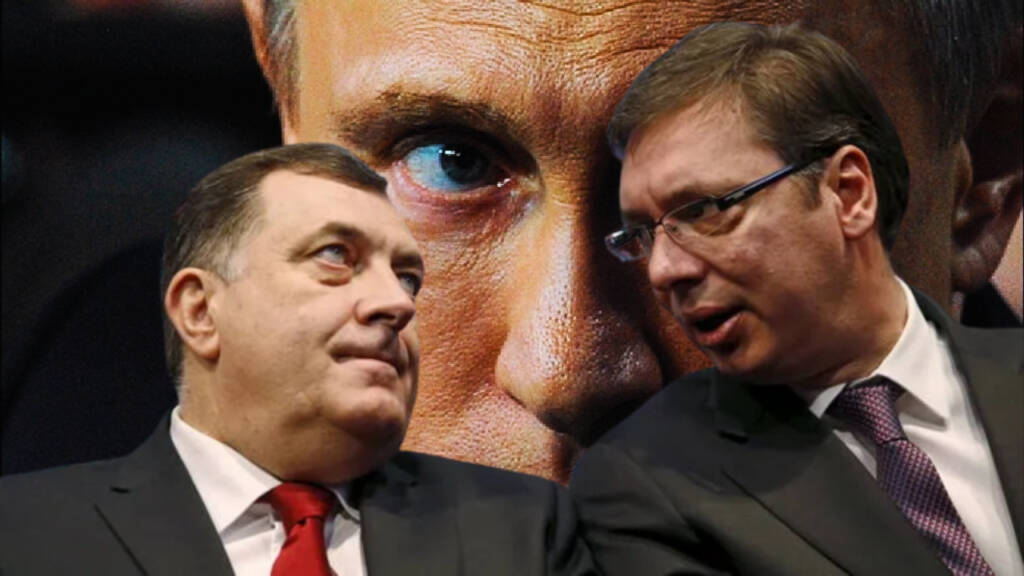The West is not realizing that Russia is slowly, but steadily putting the EU in a catch-22 situation. Ever since the disintegration of Yugoslavia, the Western powers have been trying to assert their influence in the Balkans region.
However, their attempts to buy out Balkan countries have been met with resistance and skepticism. The Balkans, with their perceived discriminatory attitudes, have never fully embraced the West, even with some countries joining NATO and receiving protection from the United States.
The European Interests
The European Union has long sought to become an important economic and political partner for the Balkan countries. However, the relationship has hit a rocky patch in recent years. The EU’s lack of progress in integrating the region into Schengen and its perceived inaction during the migration crisis has fueled growing discontent among the Balkan nations.
Trust in the bloc has waned, and sympathy for Russia has begun to grow. Russia, being the crafty player that it is, has identified the Balkans as the perfect arena to put the EU in limbo. Step one of their strategy was linking energy pipelines to Serb regions in Bosnia and Herzegovina. Now, step two is in motion.
The War Scenario
President Alexander Vucic of Serbia who is often believed as a close aid to Russian President Vladimir Putin has struck the Serb unity chord once again. He has moved the army closer to the border, putting them on the highest alert level. The situation quickly deteriorated, with Serbs in Leposavic, Zubin Potok, and Zvecan resorting to Molotov cocktails, firecrackers, and stones. The Italian Defense Ministry has reported the chaos, which is anything but calm.
The situation in Kosovo, where the Serb minority resides, is equally volatile. Clashes between NATO peacekeepers, Kosovo’s police force, and Serbian protestors have left at least 34 injured. Calls for calm have reverberated from Pristina and the international community, but Belgrade is urging the international community to pressure Kosovo, warning that things could take a different turn if Kosovo continues its oppression.
The unrest escalated when ethnic Albanian mayors, elected after Serb officials resigned en masse, took office in four municipalities in the Serb majority north of Kosovo. Serbs boycotted the subsequent vote to elect their replacements, and protestors resorted to throwing tear gas and attempting to force their way into the municipality.
Serbian President Vucic has even gone so far as to warn Kosovo that its leader, Albin Kurti, is on the path to becoming the Balkan’s Zelensky if things continue down this road. The situation is heating up, and NATO’s peacekeeping forces are feeling the pressure. NATO allies are pleading for calm, but Serbia seems unwilling to wait any longer.
Read More: Balkans ditch NATO and declare independence
The Re-unification of Serbs
Not to mention, this all happened suddenly. The Serbs have long called for justice, but whatever has unfolded in recent times has left everyone flabbergasted. There have long been calls for the reunification of Serbs in a nation called ‘Republika Srpska.’ The signs are pointing in that direction, as the region becomes increasingly turbulent, and the affinity of Serbs towards Russia is well known.
It’s a tough predicament for the EU, who wanted to control the region. Unfortunately, it seems like the sands have slipped through their fingers, and they’re left scrambling to maintain their influence.
In this strategic chess game, Russia is making calculated moves while the West struggles to counter them.
Read More: Balkans and Beyond: China’s Rise due to EU’s Blunder
Will the EU find a way to regain its footing and prevent Russia from checkmating them in the Balkans? Only time will tell, but for now, it appears that Russia’s ‘second step’ is in motion, and the balance of power in the Balkans is shifting.
Watch More:
